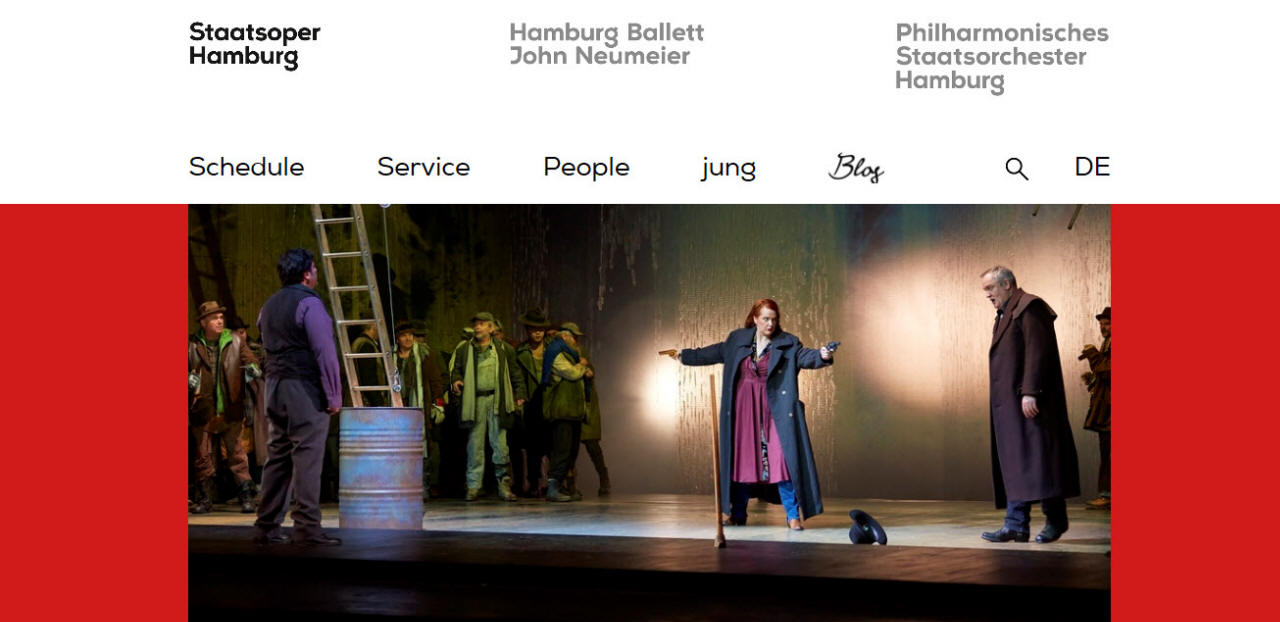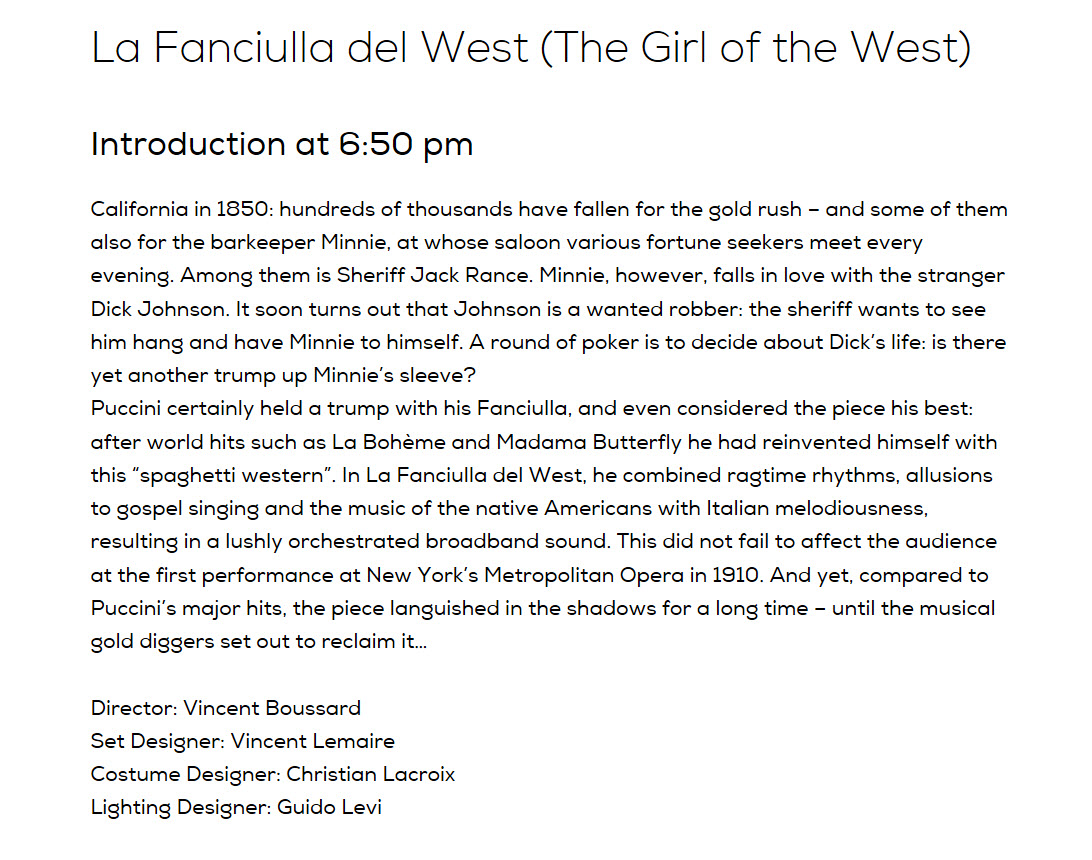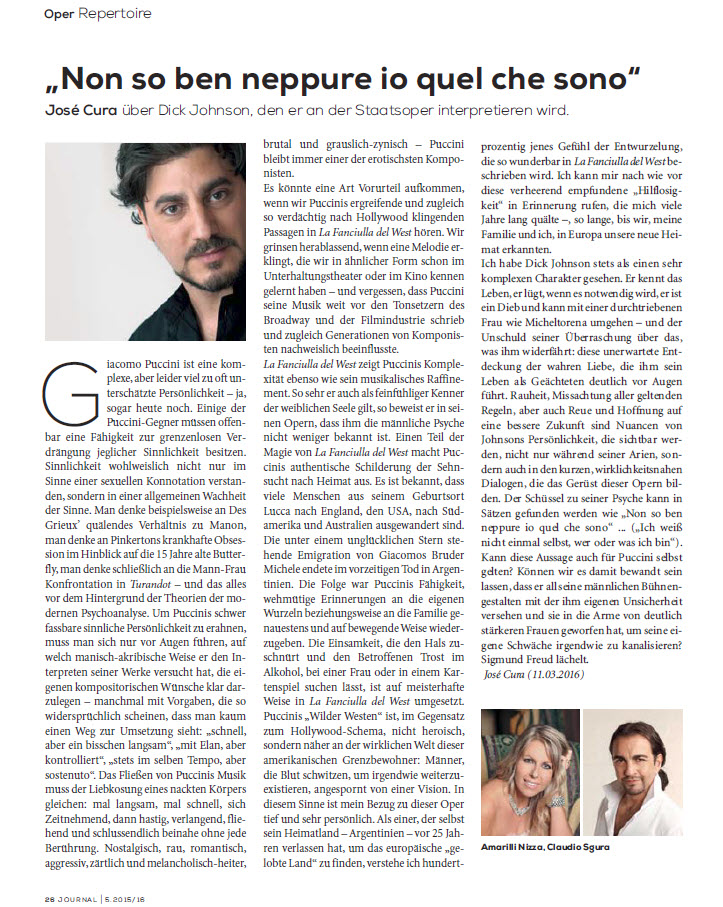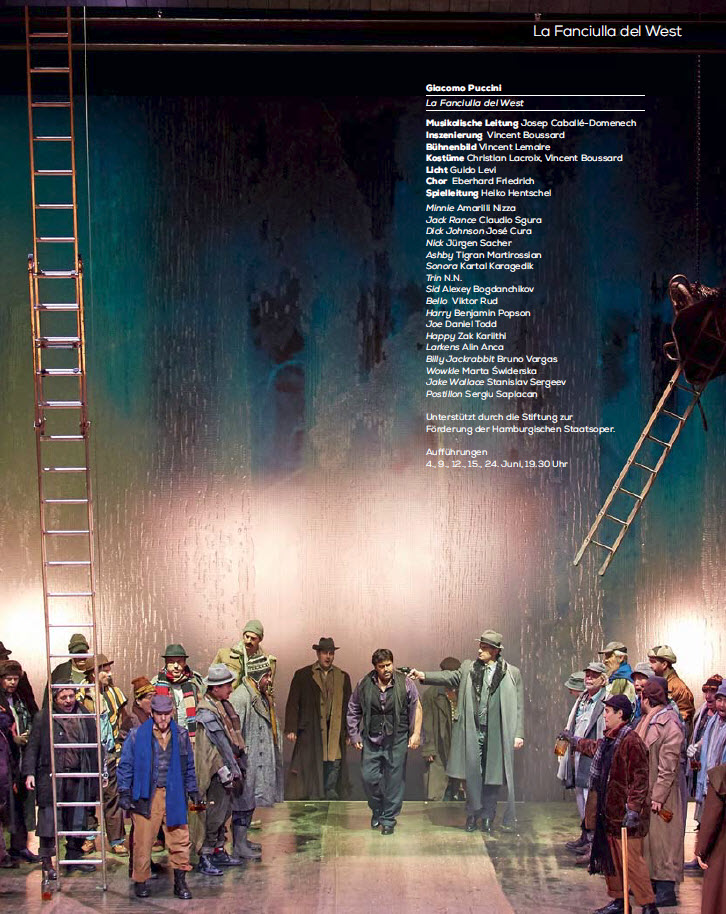|
Fanciulla, with its
six-shooters and saddles, cowboys and Indians, macho
posturing, fist-fights and rough frontier justice,
may appear to be constructed of “Old West”
canvas but its heart is made of more delicate
fabric. Director Vincent Boussard’s uneven staging
embraced that larger, sturdy canvas while allowing
the finer material to unravel.
The large scale elements were in place in act I: the
Polka was suitably rustic, the miners suitably
scraggily, the atmosphere suitably evocative. But
the very long bar was placed forward and ran
parallel to the audience, effectively blocking the
view of many whenever the action took place behind
it and the obligatory effort to shock—the
introduction of the Marilyn Monroe minstrel-in-drag
singing the nostalgic “Che faranno I vecchi miei”—fell
flat. Totally missing was the charm and whimsy
inherent in the music and libretto: Minnie’s
entrance lacked drama (she wandered in), Dick
Johnson’s entrance with his mini-saddle wasn’t
impactful, and the sweet waltz in which the virginal
Minnie submits to Johnson sadly took place
off-stage.
Act II fared little better. Again we had the big
canvas—Minnie’s single room hut was strangely tilted
with no bed, no fireplace, no appliances but
featured a floor-to-ceiling mirror and huge crystal
chandelier—but little heart. The obligatory effort
to shock was the sudden dropping of the curtain when
Johnson gives Minnie her first ‘kiss’; when it rose
the two were on the ground in each other’s arms with
the chandelier now hovering just off the floor,
obscuring half the stage. A few tossed bits of
clothing would have been as effective and less
visually disruptive. Unfortunately, Boussard writes
Johnson out of the act after the bandit is shot: the
wounded man doesn’t move for the rest of the act and
no one takes notice of him. Since Minnie and Rance
gamble for the life of the bandit, having the
bandit’s presence front and center re-enforces how
high the stakes are; however, in this production,
neither Minnie nor Rance ever even look toward the
bleeding (and presumably dying) man as the essential
trio becomes a duo. The music churns and the
emotions rise in response to the genius that is
Puccini: alas, there was no sense of urgency or
emotional attachment coming from the stage. Even
when Minnie finally wins, she laughs and throws
cards around rather than rushing to her love. She
seems more excited to have beaten the sheriff than
rescuing Dick Johnson.
Without the effective psychological underpinnings
that come from Act II, Act III becomes all canvas.
Johnson is brutalized and Minnie saunters on stage,
showing little desperation or drive. She waves her
guns around, Rance acts menacingly until he runs
away, Johnson remains stoic, the miners have a
change in heart. One of the most delightful,
romantic, uplifting operas in the canon ends with a
whimper. The fabric that was the heart seemed
shredded.
Whether due to direction or personal choice, Minnie
(Amarilli Nizza) came across as self-reverential and
unsympathetic; her voice tended to be shrill. Rance
(Claudio Sgura) was dour and one-dimensional,
somewhat hammy, though he sang well. Johnson was
well served by the ever charming José Cura who
brought his usual charisma to a role that suits him
like a favorite pair of jeans. He sang beautifully,
added lovely little touches that brought depth to
his character and seemed to have the time of his
life, but he had to struggle mightily to bring life
to the stage against a series of directorial
challenges.
The orchestra under the direction of Josep
Caballé-Domenech was disappointing: sour notes,
off-beat, too loud, out of sync—they seemed closer
to an amateur ensemble than an established, working
orchestra. Excuses were given, explanations were
made but the bottom line was that they too often
sounded like they were doing a first read-through of
the music. That they consistently overplayed the
singers and seemed incapable of any nuance reflected
control issues by the conductor. The artists on
stage, the audience and Puccini deserved better. |











